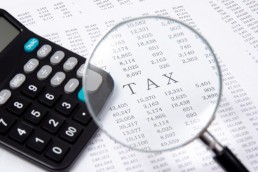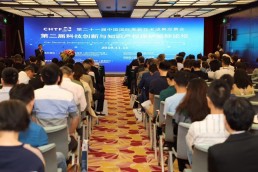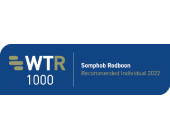New Transfer Pricing Regulation
Key Takeaways
On 16 November 2020, the Ministry of Finance announced the Ministerial Regulation on Transfer Pricing No.369 (B.E. 2563 (2020)), titled “Adjustment of Income and Expenses of Taxpayers that Engage in Related-Party Transactions”. According to this Ministerial Regulation, it identifies the rules for Revenue officer to adjust or assess income and expenses of related parties subject to Section 65, Section 70 and Section 70 bis of the Revenue Code.
The related companies or juristic partnerships which settle particular commercial or financial conditions differencing from independent entities are believed to induce a transfer of profits, in case that it meets the following conditions:
❶ Establishing particular commercial or financial conditions which are applied to the related companies or juristic partnerships;
❷ Under the same circumstances, the commercial or financial conditions set forth therein differ from the conditions that could be applied to independent companies or juristic partnerships;
❸ The related parties establish commercial or financial conditions, thereby causing a transfer of profits between them through following mechanisms:
- Providing different prices and terms, or payment methods, for the goods or services;
- Providing different interest rates, financial service fees, or any kind of financial fees;
- Providing a difference in other kind of income or expenses.
The above-mentioned mechanisms are considered by comparing to unrelated party transactions under the same circumstances.
Conclusion
Previously, transfer pricing principle has been exiting in Thailand for several years. Notwithstanding, there may still be some obstacles in practice for the Revenue officers in adjustment or assessment of income of the related parties which could be received, and also expenses incurring among them which could be paid.
Announcement of this Ministerial Regulation No. 369 could be a significant change for transfer pricing law in Thailand as it prescribes the rules and conditions for the Revenue officer on income and expenses which can be assessed. This Regulation refers that the officer could perform adjustment by using an internal comparable approach, or an external comparable approach.
Recommended Actions
It can be seen that transfer pricing law plays a greater role in Thailand. From now on, there will be more laws, regulations, rules or government notifications on transfer pricing to regulate the related party, and establish the criteria for relevant authorities to adjust or handle with the related party transactions.
In the light of business operation, it is therefore recommended for the business which could be regarded as the related parties, or involved with the related party transactions, to prepare for developments of transfer pricing by establishing the business benchmarks to be in accordance with the laws, and prepare the measures to decrease the risks that probably occur.
We will keep on monitoring and share our valued opinions henceforward.
Reference
Ministerial Regulation on Transfer Pricing No.369 (B.E. 2563 (2020)), titled “Adjustment of Income and Expenses of Taxpayers that Engage in Related-Party Transactions” can be access at this link.
Should you have any further inquiries or require any assistance, please let us know.
Yours sincerely,
Somphob Rodboon
Managing Partner
Somphob.R@ilawasia.com
ILAWASIA Co., Ltd.
Jessupa Na Pomphet
Associate
jessupa.n@ilawasia.com
ILAWASIA Co., Ltd.
Maintaining the reduced Value Added Tax (VAT) rate at 7 per cent until end of September 2021
In Brief
On 25 August 2020, the Cabinet approved to maintain the reduced VAT rate of 7 per cent for an additional 12 months period of time to 30 September 2021 as proposed by the Ministry of Finance.
The 7 per cent reduced VAT rate is inclusive of local tax and will be applicable to the VAT liabilities incurring from the sale of goods or the provision of services and import transactions.
Key Takeaways
A. Taxable Person
Any person or entity who regularly supplies goods or provides services in Thailand and has an annual turnover exceeding 1.8 million baht is subject to VAT in Thailand. Service is deemed to be provided in Thailand if the service is performed in Thailand regardless where it is utilized or if it is performed elsewhere and utilized in Thailand.
An importer is also subject to VAT in Thailand no matter whether one is a registered person or not. VAT will be collected by the Customs Department at the time goods are imported. Under VAT, taxable goods mean all types of property, tangible or intangible, whether they are available for sales, for own use, or for any other purposes.
B. Exemptions
| No. | Activities |
|---|---|
| 1. | Small entrepreneur whose annual turnover is less than 1.8 million baht |
| 2. | Sales and import of unprocessed agricultural products and related goods such as fertilizers, animal feeds, persticides, etc. |
| 3. | Sales and import of newspapers, magazaines, and textbooks |
| 4. | Certain basic services such as:
|
| 5. | Professional services: Medical and auditing services, lawyer services in court and other similar professional services that have laws regulating such professions. |
| 5. | Professional services: Medical and auditing services, lawyer services in court and other similar professional services that have laws regulating such professions. |
| 6. | Income from business, commerce, agriculture, industry, transport or any other activity not specified earlier. |
| 7. | Cultural services such as amateur sports, services of libraries, museums, zoos. |
| 8. | Services in the nature of employment of labour, research and technical services and services of public entertainers. |
| 9. | Goods exempted from import duties under the Industrial Estate law imported into an Export Processing Zones (EPZs) and under Chapter 4 of the Customs Tariff Act. |
| 10. | Imported goods that are kept under the supervision of the Customs Department which will be re-exported and be entitled to a refund for import duties. |
| 11. | Other services such as religious and charitable services, services of government agencies and local authorities. |
C. VAT Registration
Any person or entity who is liable to VAT in Thailand must register to be VAT registered person or entity (Application form Phorphor.01 and Phorphor.01.1) before the operation of business or within 30 days after its income reaches the threshold. The registration application must be submitted to Area Revenue Offices if the business is situated in Bangkok or to the Area Revenue Branch Offices if it is situated elsewhere.
Should taxpayer have several branches, registration application must be submitted to the Revenue Office where the headquarters is situated. After registered VAT, the Revenue Department will issue VAT registration certificate (Phorphor. 20). Taxpayers have to display VAT registration certificates at their premises.
D. Tax Return and Payment
VAT taxable period is a calendar month. VAT return therefore must be filed on a monthly basis. VAT return (Application form Phorphor. 30) together with tax payment, if any, must be submitted to Area Revenue Branch Office within 15 days of the following month. Services utilized in Thailand supplied by service providers in other countries are also subject to VAT in Thailand. In such a case, service recipient in Thailand is obliged to file VAT return (Application form Phorphor. 36) and pay tax, if any, on behalf of the service providers.
In the case where supply of goods or services is also subject to Excise tax, VAT return and tax payment, if any, must be submitted to the Excise Department together with Excise tax return and tax payment within 15 days of the following month. In case of imported goods, VAT return and tax payment must be submitted to the Customs Department at the point of import.
Should you have any further inquiries or require any assistance, please let us know.
Yours sincerely,
Somphob Rodboon
Managing Partner
Somphob.R@ilawasia.com
ILAWASIA Co., Ltd.
Operating Trade Import and Export Company in Lao PDR for the Local Investor (Lao National); and Operating a Distribution Company in Lao PDR for an International Investor (Foreign Investor)
The Processual for Operating the Trading Import and Export Company in Laos
To establish and operate the business in Laos, the local investor will have to register the Business license there is no provisions for the chartered capital. After that local investor will have to get registration of the Taxpayer Identify Number at the Tax Department, they do not have to get the Permit License from the Internal Trade Department.
① Get the Business License
A. Process
The process takes not more than 30 business days from the date of receiving the application. The procedure and time limit for considering the registration of an enterprise shall be as follows:
1) To file a notification to the Department of Industry and Commerce in accordance with the classification considered in Article 9 of the Decision No. 0023/MOIC.DERM
2) Upon receipt of the document, the registrar of the enterprise must check the accuracy of the document as specified in Article 12 of the Decision No. 0023/MOIC.DERM to be completed within one hour and immediately respond to the applicant in each case as follows:
2.1) Documents are complete and correct; the registrar of the enterprise must provide a receipt to the applicant. The receipt of the document must include the date, the date of receipt of the application and the date of the appointment to receive the enterprise registration no later than the official date from the date of receipt of the receipt.
2.2) Incomplete or inaccurate documents, the registrar of the enterprise shall notify the applicant immediately and recommend to correct by pointing out the points that need to be corrected and sign the instructions in the document. After the revision is complete and correct, the application will be in the process as specified above.
B. Mandatory documents
When attending the office to register a business, you should bring three copies of the following documents:
1) A completed business application form for the type of business you wish to register;
2) A photo copy of your Passport or ID card or Family Identity Book;
3) An Investor CV (for foreign investors);
4) A color photo of the Director or Manager of the business (3cm x 4cm size, taken within 3 months of application).
C. Fees
Enterprise registration for Lao people does not specify the amount of chartered capital and the cost of registering a business is dependent on the type of legal entity as follows:
| Legal Entity | Fee (Kip) | Convert to USD |
|---|---|---|
| Individual Enterprise | 40,000 | 4 |
| Sole Company Limited | 80,000 | 9 |
| Ordinary Partnership | 90,000 | 10 |
| Limited Partnership | 90,000 | 10 |
| Company Limited | 90,000 | 10 |
| State Company | 90,000 | 10 |
| Public Company | 90,000 | 10 |
| Mixed Company | 90,000 | 10 |
In addition to the registration fee there is a Capital Registration Fee based on the amount of capital being invested, as per the table below:
| Capital Investment | Fee (Kip) | Convert to USD |
|---|---|---|
| Under 1,000,000 | No charge | No charge |
| More than 1,000,000 - 10,000,000 | 20,000 | 2 |
| More than 10,000,000 - 20,000,000 | 50,000 | 5 |
| More than 20,000,000 - 50,000,000 | 100,000 | 11 |
| More than 50,000,000 - 100,000,000 | 300,000 | 32 |
| More than 100,000,000 - 400,000,000 | 500,000 | 54 |
| More than 400,000,000 - 1,000,000,000 | 1,000,000 | 108 |
| More than 1,000,000,000 - 10,000,000,000 | 2,000,000 | 215 |
| More than 10,000,000,000 - 20,000,000,000 | 3,000,000 | 323 |
| More than 200,000,000,000 | 5,000,000 | 538 |
② Seal
The Seal of the company must be issued by the Ministry of Lao Public Security
A. Procedure time: The officer will give the receipt to the applicant and the process takes 5 business days from the date of receiving the document.
B. Mandatory documents: a copy of Business License
C. Fees: 130,000 Kip (or 14 USD)
③ Get the Register of the Taxpayer Identification Number
When the Business license has issued, the taxpayer identification number will be there and the foreign investor must see the Tax Department.
A. Procedure time: 2 business days
B. Mandatory documents: a copy of all of the document from the Enterprise Registration and Management Department
C. Fees: 20,000 Kip (or 2.14 USD)
The Processual for Distribution Company in Laos for the Foreign Investor
The foreign investor has to get the Business license at the Enterprise Registration and Management Department. Once the business license has issued, the foreign investor must see the Department of Internal Trade to obtain the Permit License. The process for obtain the Permit License are as follows:
A. Procedure time: 7-10 business days
B. Mandatory documents:
1) Submit the Permit License application which provided by the Department of Industry and Handicraft, Department of Internal Trade, Department of Import and Export;
2) A set of the Original or the copy of Business License;
3) A set of the Original or the copy of the application of business license guideline
C. Fees: 100,000 Kip (or 11 USD)
Should you have any further inquiries or require any assistance, please let us know.
Yours sincerely,
Somphob Rodboon
Managing Partner
Somphob.R@ilawasia.com
ILAWASIA Co., Ltd.
Viphavanh Syharath
Associate
Viphavanh.S@ilawasia.com
ILAWASIA Co., Ltd.
Government Announced a New Legislation on Building for Energy Conservation
In Brief
A. Repeal of law
On November 12, 2020, Government Gazette announced “Ministerial Regulation Prescribing Type or Size of Building and Standard, Criteria and Procedure in Designing Building for Energy Conservation B.E. 2563 (2020).” The regulation repeals previous regulation published in 2009, and mandates an energy-efficient design for building with a total area in all stories of 2,000 square meters or more.
B. Effective date of current law
This Ministerial Regulation shall be enforced after the lapse of one hundred and twenty days from the date of their publication in the Government Gazette onwards, which is on March 12, 2021.
Key Takeaways
A. Categories of buildings
For the construction or modification of the following buildings, if the total area of all floors within the same building is from 2,000 square meters upwards, such buildings must be designed for energy conservation under these Ministerial Regulations:
| No. | Type of buildings |
|---|---|
| (1) | Entertainment service buildings |
| (2) | Hotels |
| (3) | Services facilities and related buildings for services |
| (4) | Nursing premises and hospitals |
| (5) | Educational institutions |
| (6) | Office buildings |
| (7) | Shopping malls and department stores |
| (8) | Condominiums |
| (9) | Meeting halls |
B. Standards and Bases Respecting Designing of Building
| Matters | Details |
|---|---|
Building Frame System
|
The overall thermal transfer value prescribed by the Notification of the Minister.
important">Building with multiple descriptions of area usage, each area must use the requirements of the building frame system according to the description of usage of such area. |
| Lighting System | The electrical equipments for lighting system within building must use highest electrical power in each building category prescribed by the Minister.
Use of electrical lighting within the building, excluding car park area must be of a sufficient luminance level for each category of work, and must also be in line with the law governing building control or the specific law governing such. |
| Air-Conditioning System | The air-conditioning system, the categories and the sizes of air-conditioned system installed within a building must be of the minimum coefficient competency ratio, seasonal energy efficiency ratio, and the electrical power per ton of cooling as prescribed by the Minister. |
| Water Heating Equipment | The water heating equipment installed within the building must be of the minimum coefficient competency value and minimum efficiency value as prescribed by the Minister. |
| The design of building for energy conservation | The building design shall have evaluation of construction and modification and minimum value of each system prescribed by the Minister. |
| The building which contains renewable energy inside. | Shall be taken into consideration for the calculation of renewable energy ratio and decreasing the total energy performance, prescribed by the Minister. |
| The evaluation of building | The building design shall be audited by a qualified engineer, a qualified architecture, or a person who achieved the certificate by Department of Alternative Energy Development and Efficiency. |
| The approval of building evaluation | The building owner must prepare building evaluation report and shall recruit a qualified auditor mentioned above and apply for building construction license or building modification request under Building Controls Act. |
Transitory Provisions
On a grace period, this ministerial regulation shall not be executed for such buildings:
| No. | Type of buildings | Period of Exemption |
|---|---|---|
| (1) | Building with a total area in all stories of 5,000 squares meters, and less than 10,000 squares meters | 1 year |
| (2) | Building with a total area in all stories of 2,000 squares meters, and less than 5,000 squares meters | 2 year |
The construction or building modification that already filed for permission or reported for the construction, modification or change of usage under the law governing building control, or as permitted by the specific law governing such, or filed for environment impact assessment by promotion and conservation of national environmental quality law, prior to the effective date of these Ministerial Regulations, shall be exempted from compliance under these Ministerial Regulations.
Reference
Ministerial Regulation Prescribing Type or Size of Building and Standard, Criteria and Procedure in Designing Building for Energy Conservation B.E. 2563 (2020) can be accessed at this link.
Should you have any further inquiries or require any assistance, please let us know.
Yours sincerely,
Somphob Rodboon
Managing Partner
Somphob.R@ilawasia.com
ILAWASIA Co., Ltd.
Vanisha Chaidee
Associate
Vanisha.C@ilawasia.com
ILAWASIA Co., Ltd.
Ministerial Regulation prescribing rates of fees for registration, inspection of documents, certified copies of documents and other fees in relation to partnerships and limited companies B.E. 2563
In Brief
A. Repeal of law
The Ministerial Regulations prescribing rates of fees for registration, inspection of documents, certified copies of documents and other fees in relation to partnerships and limited companies, B.E. 2561 (2018) shall be repealed.
B. Effective date of current law
Government Gazette announced new law on 29th December 2020 named “Ministerial Regulation prescribing rates of fees for registration, inspection of documents, certified copies of documents and other fees in relation to partnerships and limited companies B.E. 2563 (2020).” It shall be effective on 1st January B.E. 2564 (2021).
Key Takeaways
A. Fees shall be prescribed as follows:
| No. | Matters | Fee(Baht) |
|---|---|---|
| (1) | Registration of partnership | 1,000 |
| (2) | Registration of memorandum of association of a limited company | 500 |
| (3) | Registration of formation of a limited company | 5,000 |
| (4) | Registration of amalgamation of : (a) a partnership (b) a limited company |
1,000 5,000 |
| (5) | Registration of transformation of a registered partnership or limited partnership into a limited company | 5,000 |
| (6) | Registration of the following items; Registration of change of partners or change of contributions of partners, Registration of an alteration of the memorandum of association prior or after the Registration of formation of a limited company, Registration of an alteration of articles of association of a limited company, Registration of an alteration of directors, Registration of an increase or reduction of the capital of a limited company, Registration of a dissolution of a partner-ship or a limited company or Registration of other matters | 500 per request |
| (7) | Certificates of registration of a partnership or a limited company | 100 per copy |
| (8) | Inspection of documents (a) Inspection of application for registration and supporting documents of a partnership or a limited company (b) Inspection of financial statements and list of shareholders of a limited company |
50 per each request |
| (9) | A request for certified copies or for certified photo-copies of documents including certified copies of documents summoned by a court warrant. | 50 per page |
| (10) | A request for written certification of statements entered in the Register, including certificates summoned by a court warrant. | 40 per item |
| (11) | Transfer of computer data
|
800 / request 0.30 per record |
| (12) | Transfer of data from a computer network of the Department of Business Development to computer of the applicant
|
3,000 / each 30 / each 3,000 / each |
B. Reduction and Exemption of Fees
Fees according to (1) (2) (3) (4) (5) and (6) shall be reduced by fifty per cent for application filed for partnerships or limited companies via the e-Registration portal. This reduction will be applicable from the date of the entry into force of this Ministerial Regulation until the 31st December B.E. 2566 (2023).
Fees according to (8) (9) (10) (11) and (12) shall be exempt for government agencies.
Remarks
Applications filed during the approval process at the time this Ministerial Regulation entries into force shall be applied according to this Ministerial Regulation.
The provisions of any laws pertaining to the rates of fees shall be superseded by the rates of fees as prescribed under this Ministerial Regulation.
Reference
Ministerial Regulation prescribing rates of fees for registration, inspection of documents, certified copies of documents and other fees in relation to partnerships and limited companies B.E. 2563 can be accessed at this link.
Should you have any further inquiries or require any assistance, please let us know.
Yours sincerely,
Somphob Rodboon
Managing Partner
somphob.r@ilawasia.com
ILAWASIA Co., Ltd.
Government relief measures on holding Annual General Meeting (AGM) of Juristic Person under COVID-19 situation
In Brief
Due to the current COVID-19 situation in Thailand is effectively controlled and prevented by the government, consequently, the measures on restrictions of activities of Juristic Person have been relieved for public and business sectors to operate daily transactions continuously.
Therefore, the Juristic Person who is required, according to the law, to appoint the shareholders and related attendees to attain the Annual General Meeting (AGM) would be able to hold the meeting with physical presence of the shareholders and attendees in the meeting or participate the juristic person’s activities in venues. This is one of the activities which has been eased and be allowed to proceed. Notwithstanding, the protection and suppression policies on COVID-19 spreading issued by the government shall still be followed and implemented in a proper manner.
Key Takeaways
On 2 November 2020, the Department of Business Development (“DBD”)) has announced a notification regarding the setting up of Juristic Person’s meeting re: Setting up the Annual General Meeting of Juristic Person under prescriptions of Section 9 of the Emergency Decree (No.10, B.E. 2548).
The key objective of this notification is to repeal the previous notification concerning the postponement for setting up the Annual General Meeting which was announced on 4 March 2020 during an intense spread of COVID-19 in Thailand.
Recommended Actions
The Notification will be enforced on 1 December 2020 onward and any limited company, public company limited, scheduled the date of fiscal year on (or prior) 31 July 2020 and has not been held the company Annual General Meeting, are obliged to proceed as follows:
1) Annual General Meeting should be held in the period commencing from now on until 30 November 2020 and the juristic person is also required to file the list of shareholders and financial statement by the timetable below:
| Type of Legal Entity | Meeting | Filing the List of Shareholders | Filing the Financial statement |
| Company Limited | Within 4 months from end of fiscal year date | Within 14 days from the Annual General Meeting of Shareholders | Within 1 month from the day that financial statement has been approved by the General Meeting |
| Public Company Limited | Within 1 month from the ending date of the meeting | ||
| Association | Within 120 days from end of fiscal year date | – | Within 30 days from the general meeting date |
2) In the event that the company is unable to set up the Annual General Meeting in time, the company must file the Letter of Explanation to the DBD to explain the reason of not setting up the Meeting. The Letter may be submitted online or hand over directly at the DBD office or Offices of Business Development (zone 1-6) or any Provincial Commercial Offices before 4 January 2021.
Conclusion
The balance-sheet must be submitted to the General Meeting for approval within four months as from its date. In case that the company fails to submit the balance-sheet to the Meeting on time as prescribed, it shall be punished by paying a fine for 6,000 Baht and the director shall also pay a fine for 6,000 Baht per person.
Should you have any further inquiries or require any assistance, please let us know.
Yours sincerely,

Somphob Rodboon
Managing Partner
somphob.r@ilawasia.com
ILawAsia Co., Ltd.

Nattaya Mahakunakorn
Associate
nattaya.m@ilawasia.com
ILawAsia Co., Ltd.
Myanmar Government Implements Economic Relief Measures

Myanmar Government Implements Economic Relief Measures
11 May 2020
The Myanmar Government on 27 April 2020 released its COVID-19 Economic Relief Plan (CERP), which aims to mitigate the inevitable economic impact posed by COVID-19. The CERP’s seven Goals for responding to the crisis, each with detailed Action Plans, will impact all aspects of economy – from international trade and investment to private households and employment.
The seven Goals set out in CERP are as follows:
- Improving the macroeconomic environment
- Easing the impact on the private sector through improvements to the banking, investment and trade sectors
- Easing the impact on laborers and workers
- Easing the impact on households
- Promoting innovative products and platforms
- Strengthening the health-care system and
- Increasing access to the COVID-19 response financing including contingency funds
Key Action Plans of each Goal are briefly as follows:
1.Improving the macroeconomic environment
- Lower interest rates (by at least 3.0%) and lower minimum reserve requirement on banks have recently implemented by Central Bank of Myanmar (“CBM”).
- The CERP also prescribes that the CBM shall conduct credit auctions as necessary to inject more liquidity into the banking and financial sector.
2.Easing the impact on the private sector through improvements to the banking, investment and trade sectors
- Providing MMK 100 billion 1-year working capital loans to improve working capital of affected Myanmar Small and Medium Enterprise (“MSMEs”) in the CMP and hotel/tourism sectors at 1% interest rate per annum.
- Defer corporate income tax and commercial tax payments, due in March and June 2020, to September 2020
- Waiver of the 2% Withholding Tax on exports
- Exemption of customs duties, commercial tax, and specific goods tax imposed on the importation and distribution of medical supplies and products related to the prevention, control, and treatment of COVID-19
- Three- to six-month exemption from lease fees for impacted firms that have leased state-owned factories for manufacturing, and that have made regular payments in the past three months
- Permission for commercial banks to restructure and reschedule existing loans extended to SME businesses for longer repayment periods (up to a maximum of three years)
- Waiver of import licensing and FDA requirements, as long as the products are FDA approved in another country
3.Easing the impact on laborer and workers
- Extending healthcare benefits for unemployed social security members from six months to 1 year from the date of unemployment and medicine and travel benefits from six months to 1 year from the date of unemployment.
- Implementing labor-intensive community infrastructure projects for those laid off, or returning migrants.
4.Easing the impact on households
- Electricity tariff exemption
- Unconditional cash and in-kind transfers for vulnerable households
- Emergency rations through community-based food banks and association
- Negotiation with private financial institutions to give more flexibility related to interest and mortgage payments for households which are most negatively affected by the COVID-19 pandemic
5.Promoting innovative products and platforms
- Promoting the use of available mobile payment services and usage of e-Commerce and Social-Commerce Systems
6.Strengthening the healthcare system
- Immediately extending and improving quarantine centers/facilities
- Immediate importation of key medical products
- Improving preventive measures and health sector human resource capacity
- Upgrading existing health facilities
7.Increasing access to the COVID-19 response financing including contingency funds.
- Reallocation of Myanmar’s 2019-20 budget as much as practically possible up to 10% from all government entities to the COVID-19 Fund
- Improve budget flexibility and responsiveness through modernization of budget reallocation rules
- Increase access to COVID-19 -related development financing through acquiring significant increases in external development finance
The CERP also establishes clear and specific assessment indicator for each Action Plan. The form and content of the CERP suggest that Myanmar is well on its way to becoming a regular player on the stage of world economy. For businesses, Myanmar is certainly one to watch.
THE AUTHORS

Company new Registration under Myanmar Law
Since Union of Myanmar has decided to promulgate the new Myanmar Company Law (“MCL”) on 1st August 2018, there are some issues that have to be concerned by an investor whose company is incorporated under the previous law (Myanmar Company Act. 1914)
- The companies that were incorporated under the previous law have to be re-registered under the MCL.
The New Myanmar Company Law requires all existing companies to be re-registered with the Directorate of Investment and Business Administration ("DICA") under the provision of the MCL from 1 August 2018 and no later than 31 January 2019; otherwise the company may be revoked from the record.
However, DICA has prepared an online system called Myanmar Company Online System (“MyCO”) to support all entrepreneurs who owned a company or willing to incorporate their company in Myanmar. MyCO will start to be operated on the same day of the promulgation of the MCL.
- Amending some of the significant rules.
- MCL let the foreign investors to invest in local company up to 35 percent.
Under the previous law (Myanmar Company Act. 1914), all Local Company are defined as (a company) 100% owned by Myanmar Citizen. Therefore, the foreigner is not allowed to participate in the ownership of the local register company.
Therefore, any citizen of another nationality wishes to incorporate a company to manage his business in Myanmar, must establish his own company as a foreign company as his right may be limited by any applicable law.
Nevertheless, the MCL will come up with alternation of definition for the foreign company as a company that is directly or indirectly owned by foreigners for more than 35 percent which mean the foreigners can hold up to 35 percent of local company’s shares and still be defined as a local company.- Qualification of the shareholders and directors
MCL states that every company must have at least one shareholder and director and at least one of the directors must be “ordinarily resident” which mean a person who is a permanent resident of the Union under an applicable law or is resident in the Union for at least 183 days in each 12 month period commencing from the date of commencement of the MCL for the company registered under the previous law, and from the date of registration of the company for the company registered under the MCL.
- Revocation of company’s object
According to the previous law, every company must declare its object in the Memorandum of Association. This object determines the company's authority to make or take an action on other people or companies.
The company must not undertake or perform actions that exceed their object of being registered with the registrar. However, the new MCL will revoke this objective requirement by defining that the company registered in MCL will no longer have to declare its object.
Therefore, the company will have the power to performance any kind of commercial activity provided that it complies with this law and any other applicable law.- The replacement of Memorandum and Article of Association
Previously, the Memorandum and the Article of Association are significant documents that must be filed with the conservator of the company during the registration process. The MCL does not require applicants to file these documents, but only have to file the company's Constitution during the registration process.
The Company's Constitution is a document that establishes the administrative rules of the company. Furthermore, the Constitution determines a relationship between shareholders, directors and other members of the company.
In conclusion there are two important steps that must be made by entrepreneurs who have owned or own a company in Myanmar
First, they must try to understand to comply with the law, so that they can properly manage their business for their best interest of the company.
Secondly, they have to re-register their company to the DICA before 31 January 2019. Otherwise, their company ( and business ) could be revoked.
















































